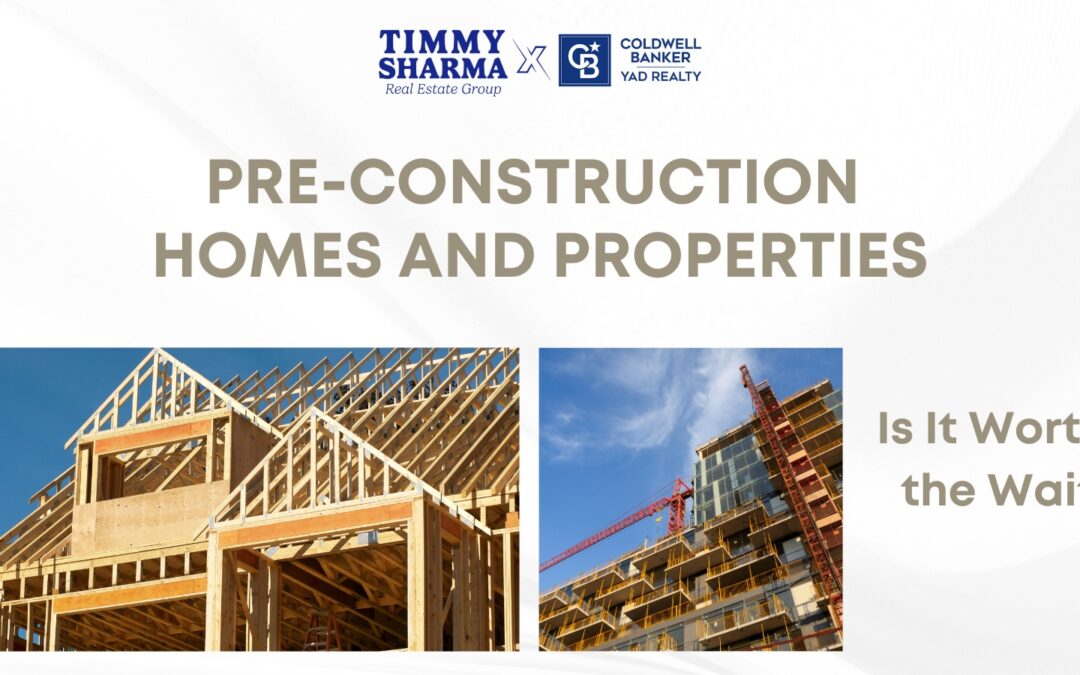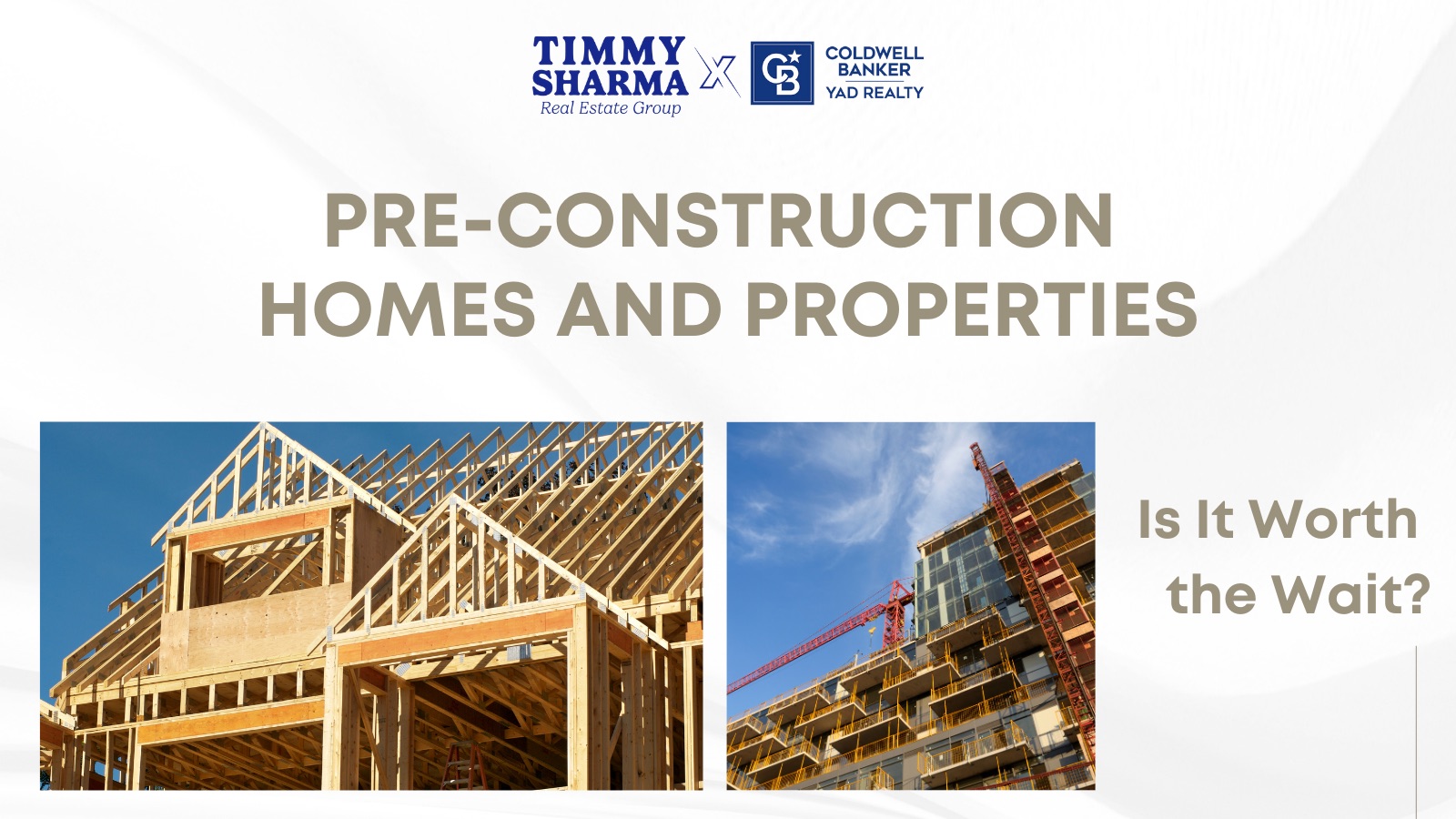
Introduction
Are you dreaming of a brand-new home tailored to your exact preferences? Investing in a pre-construction home in Calgary could be the answer. This unique approach to homeownership offers a host of benefits, from customization options to potential financial advantages.
What is a pre-construction home, you ask? It’s a property that’s purchased before construction is complete. This allows you to secure your dream home at an early stage, often at a more competitive price point. As a buyer, you get the exciting opportunity to personalize your space, choosing everything from flooring and cabinetry to lighting fixtures and countertops.
However, it’s important to note that pre-construction home purchases aren’t without their risks. Factors like construction delays, potential cost overruns, and market fluctuations can impact your investment. To make an informed decision, it’s crucial to weigh the pros and cons carefully.
In the following sections, we’ll delve deeper into the advantages and disadvantages of pre-construction homes, explore the key factors to consider, and provide tips for a smooth buying process. Whether you’re a first-time homebuyer or a seasoned investor, understanding the nuances of pre-construction purchases can help you make the right choice for your future.
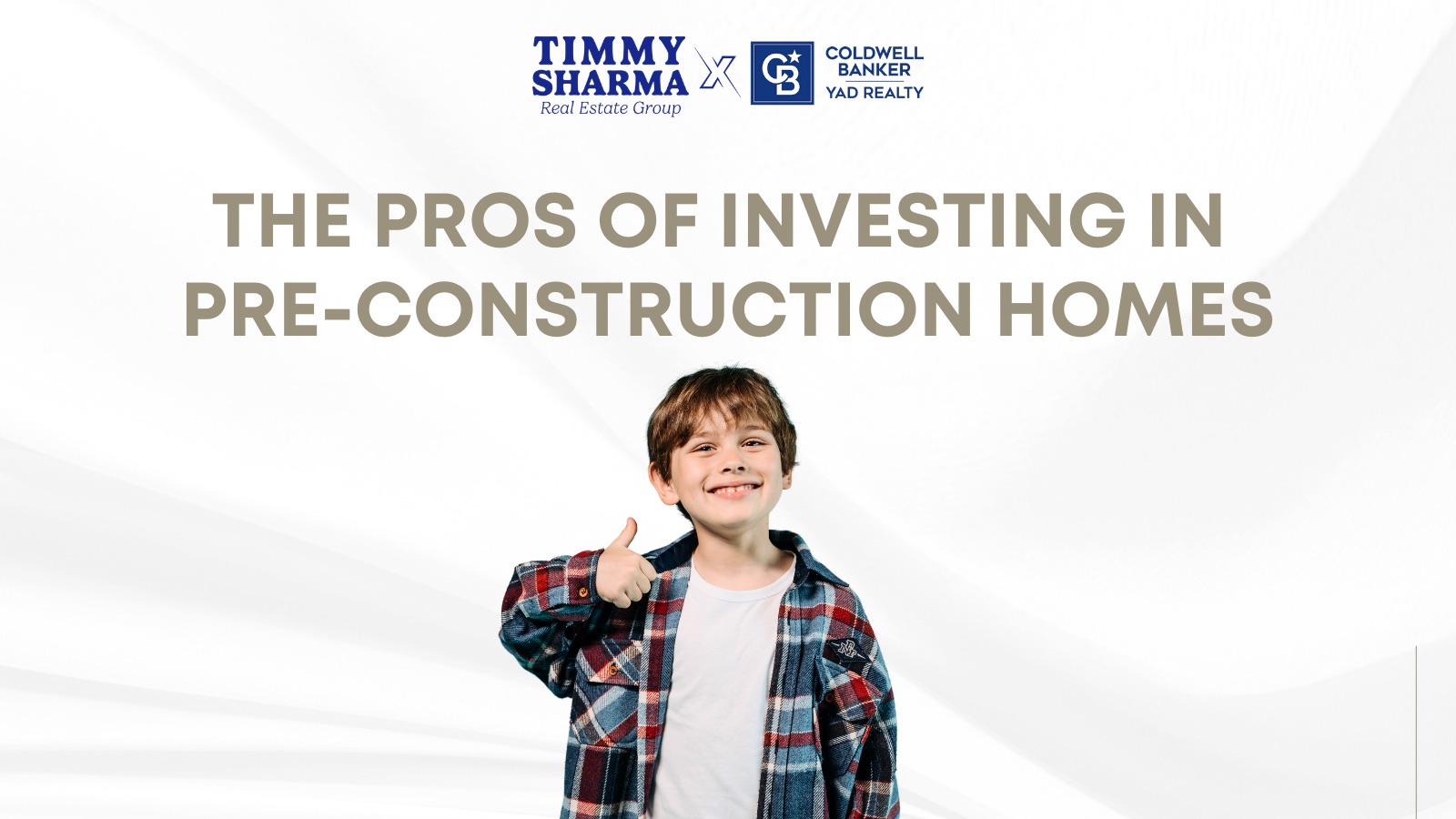
The Pros of Investing in Pre-Construction Homes
Investing in a pre-construction home in Calgary offers a unique opportunity to shape your dream living space and potentially secure a lucrative investment. Here are the key advantages:
Customization Options
One of the most enticing aspects of pre-construction homes is the unparalleled level of customization. As a buyer, you have the freedom to choose from a wide array of finishes, fixtures, and layouts to create a home that perfectly aligns with your personal style and preferences. Whether you envision a sleek, modern aesthetic or a classic, traditional look, the possibilities are virtually limitless.
Potential for Higher Returns
Historically, pre-construction homes have demonstrated the potential for significant appreciation over time. As the real estate market continues to evolve, investing in a well-located pre-construction property can yield substantial returns. Factors like strategic location, increasing property values, and potential rental income can contribute to a solid investment.
Lower Prices
Often, pre-construction homes are priced lower than comparable ready-to-move-in properties. This presents a unique opportunity to secure a great deal and potentially save on costs. By purchasing a pre-construction home, you can capitalize on early-bird discounts, special promotions, and negotiated deals.
Price Locking
By investing in a pre-construction home, you can lock in the purchase price, safeguarding yourself against future market fluctuations. This can be especially beneficial in a rising market, where property values may increase over time.
Early Bird Benefits
Many builders offer exclusive incentives and discounts to early buyers of pre-construction homes. These can include upgraded features, reduced closing costs, or special promotions. By securing your purchase early on, you can take advantage of these exclusive offers and enhance the overall value of your investment.
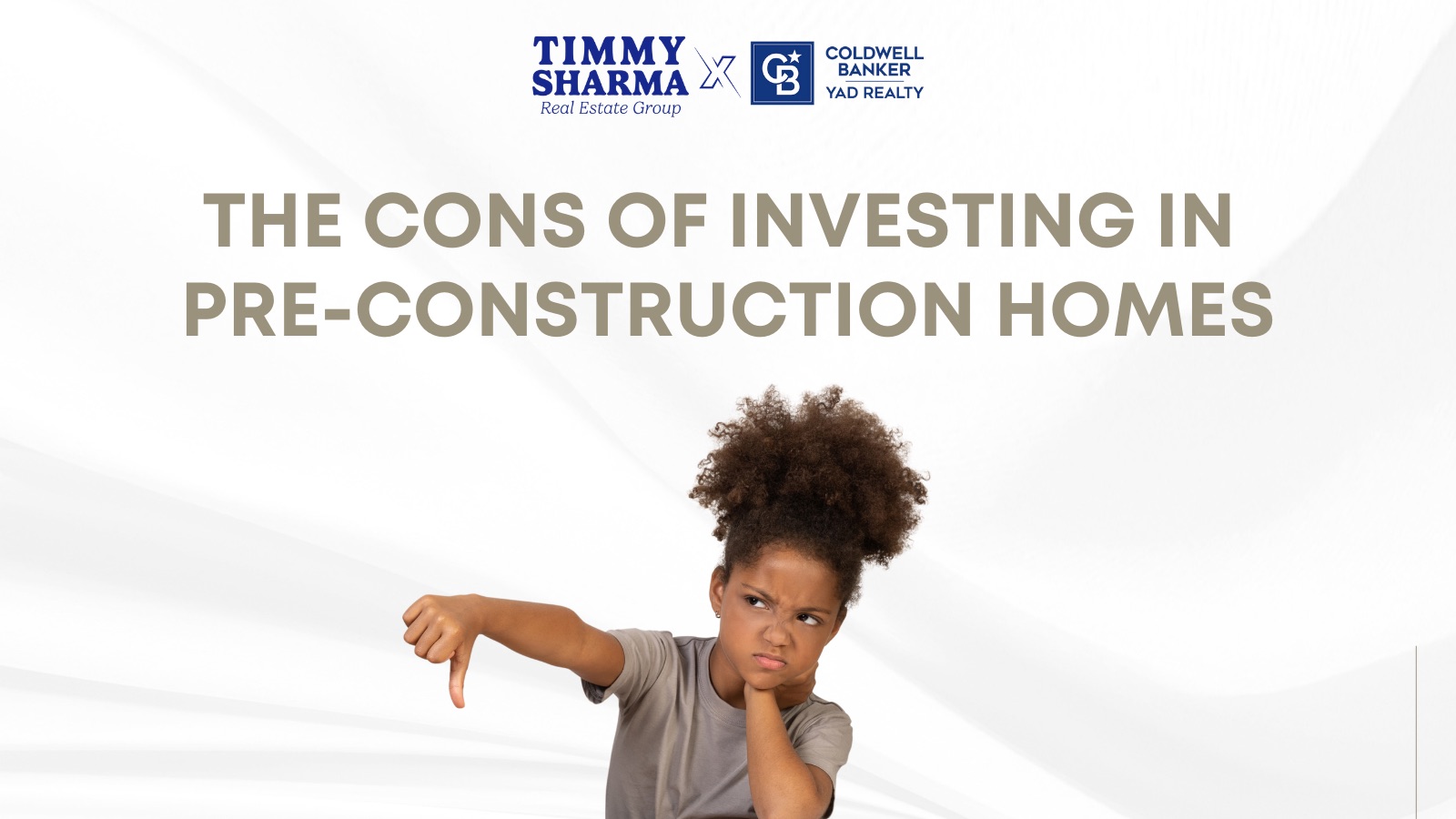
The Cons of Investing in Pre-Construction Homes
While pre-construction homes offer many advantages, it’s important to be aware of the potential drawbacks before making a decision. Here are some key considerations:
Longer Waiting Periods
One of the most significant downsides of pre-construction homes is the extended waiting period. Construction timelines can be unpredictable, and delays can occur due to various factors such as weather conditions, labor shortages, or supply chain issues. This can lead to frustration and inconvenience, especially if you’re eager to move into your new home.
Construction Risks
There’s always a risk that construction quality may not meet expectations. Issues like poor workmanship, material defects, or design flaws can arise, leading to additional costs and delays. It’s crucial to choose a reputable builder with a proven track record to minimize these risks.
Financial Commitments
Investing in a pre-construction home often requires significant upfront costs, including down payments and other fees. Additionally, you may need to secure financing, which can involve interest payments and other financial obligations. It’s essential to assess your financial situation carefully and ensure you can comfortably meet these commitments.
Market Fluctuations
The real estate market can be volatile, and property values can fluctuate over time. If market conditions deteriorate during the construction period, the value of your pre-construction home may decrease, potentially impacting your investment.
By understanding these potential drawbacks, you can make informed decisions and take steps to mitigate the risks associated with pre-construction home purchases.
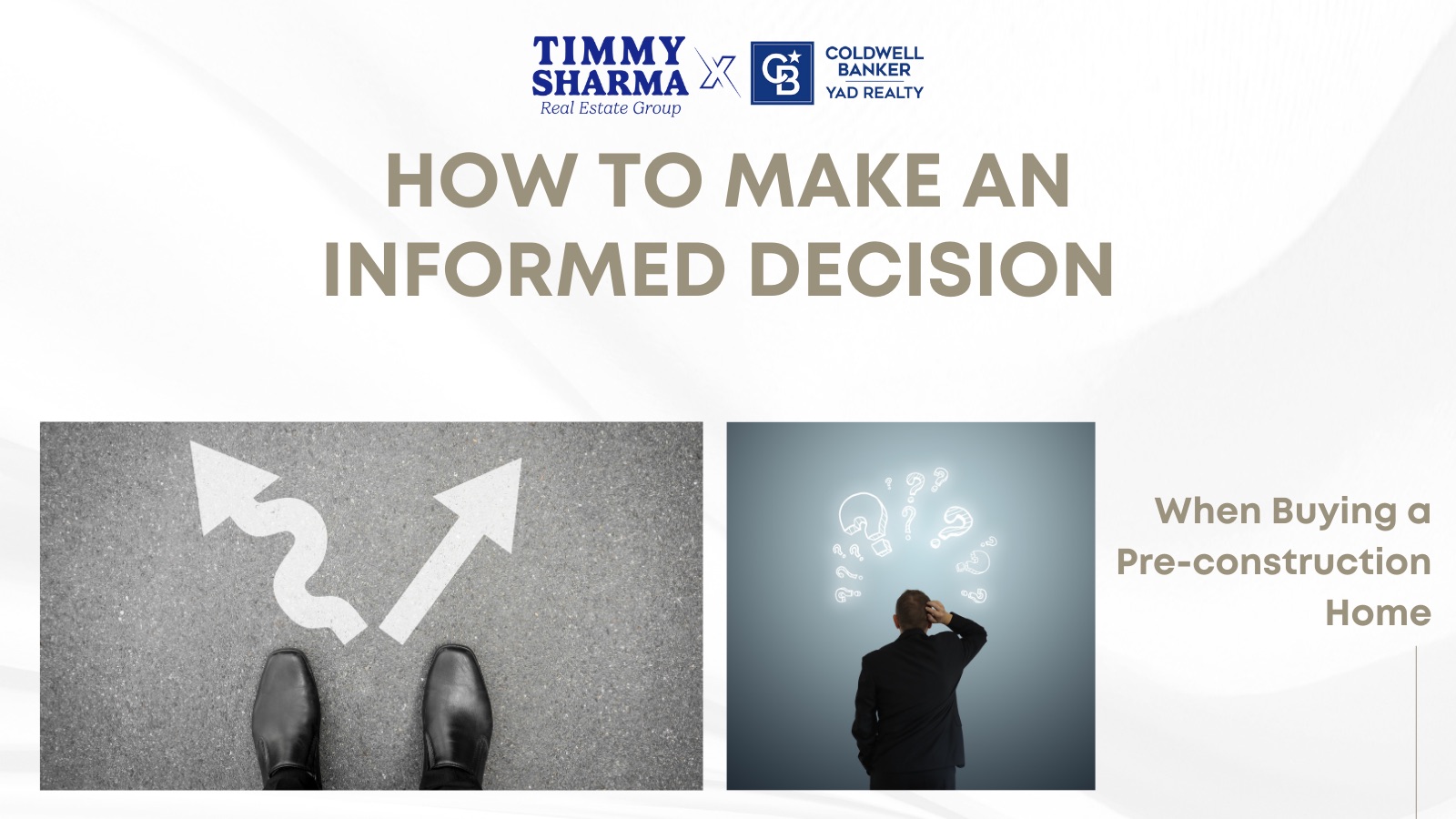
How to Make an Informed Decision When Buying a Pre-construction Home
To ensure a smooth and successful pre-construction home buying experience, it’s crucial to approach the process with careful consideration and diligence. Here are some key tips:
Do Your Research
- Investigate the Builder’s Reputation: Research the builder’s track record, past projects, and customer reviews. A reputable builder with a strong history of delivering quality homes on time can significantly reduce your risks.
- Research the Project’s Location: Consider the location’s proximity to amenities, schools, transportation, and employment opportunities. A well-located property is more likely to appreciate in value over time.
Understand the Payment Plan
- Review the Payment Schedule: Carefully analyze the payment schedule to ensure you can meet the financial obligations on time.
- Consider the Interest Costs: If you’re financing your purchase, factor in the interest costs associated with the loan.
Consult with a Real Estate Lawyer and Advisor
- Protect Your Interests: A real estate lawyer can review the purchase agreement, ensure your rights are protected, and help you navigate any legal complexities. An unbiased real estate advisor can help you make a profitable and safe decision as to which builders are currently building and the market research on which pre-construction properties are worth investing in.
Assess Your Financial Situation
- Budget Wisely: Ensure you have a clear understanding of your budget and financial capabilities. Factor in potential additional costs such as property taxes, insurance, and maintenance fees.
Visit the Construction Site
- Monitor Progress: If possible, visit the construction site to assess the progress and quality of work. This can provide valuable insights into the builder’s commitment to quality and timelines.
Ask Questions
- Don’t Hesitate to Ask: Don’t be afraid to ask questions about the project, the builder, and the buying process. A reputable builder will be transparent and willing to address your concerns.
By following these guidelines, you can increase your chances of a successful pre-construction home purchase and minimize potential risks.
To start researching on pre-construction properties today, contact us and we will be happy to guide you through every step of the way.
Frequently Asked Questions (FAQ)
1. What are the common risks involved in pre-construction purchases?
A: Some common risks associated with pre-construction home purchases include construction delays, cost overruns, changes in building materials or design, and potential market fluctuations. It’s essential to choose a reputable builder and carefully review the purchase agreement to mitigate these risks.
2. How can I be sure that the builder will complete the project on time?
A: While there’s no guarantee that construction will be completed on schedule, you can take steps to minimize delays. Research the builder’s track record, review their past projects, and inquire about their contingency plans for potential setbacks. Additionally, consider the builder’s financial stability and their ability to manage resources effectively.
3. What happens if the property value decreases during the construction period?
A: Market fluctuations can impact property values. However, well-located pre-construction homes in growing areas often appreciate in value over time. It’s important to conduct thorough market research and choose a property in a desirable location to minimize the risk of value depreciation.
4. Can I sell my pre-construction home before possession?
A: Yes, you can potentially sell your pre-construction home before possession. However, it’s important to check the terms of your purchase agreement and consult with a real estate agent to understand the specific conditions and potential fees associated with resale.
5. What are the tax implications of investing in a pre-construction home?
A: The tax implications of owning a pre-construction home can vary depending on your specific circumstances and local tax laws. It’s advisable to consult with a tax professional to get personalized advice. However, some potential tax benefits may include deductions for property taxes and mortgage interest.
Conclusion
Investing in a pre-construction home in Calgary can be an exciting opportunity to build your dream home and potentially secure a valuable asset. By carefully considering the pros and cons, conducting thorough research, and working with a reputable builder, you can maximize your chances of a successful investment.
Remember to weigh the potential benefits, such as customization options and potential for higher returns, against the risks, including construction delays, cost overruns, and market fluctuations. By making informed decisions and taking proactive steps, you can navigate the pre-construction home buying process with confidence.
Ultimately, the decision to invest in a pre-construction home is a personal one. By carefully considering your financial situation, lifestyle needs, and long-term goals, you can make the best choice for your future.
To look for available properties on Calgary market and for more other information, visit timmysharma.ca

